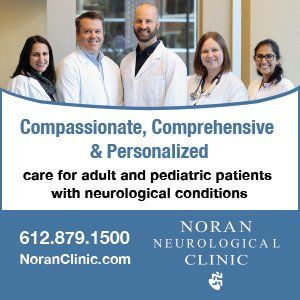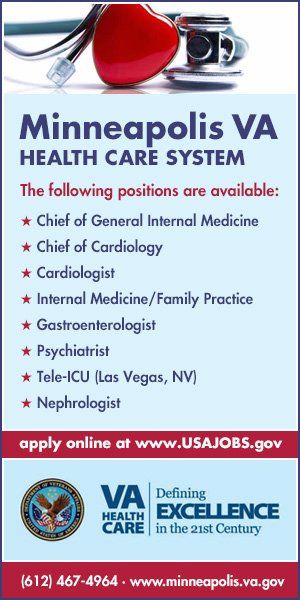hen it comes to providing care for the senior population, one element that is often overlooked is their mental health. Seniors have many unique concerns around mental health and there are unique methods of addressing those concerns. There are also unique concerns around the mental health of those who work providing care for those seniors. LeadingAge Minnesota is a membership-based organization that represents the long-term care sector of health care delivery. Through the LeadingAge Minnesota Foundation (LAMF), it has engaged in a groundbreaking initiative to establish a comprehensive mental health safety net for its member facilities and for those who provide care for them.
Long-term Care
Long-Term Care and Mental Health
First aid for seniors and caregivers
BY Anna Mowry
Providing high-quality care in long term care facilities is a complex and difficult challenge. It involves a wide spectrum of caregivers, whose training ranges from basic custodial duties to the highest level of professional training, including advanced nursing degrees and even specialist physicians. For the purposes of this article we will refer to these individuals as staff members.
In collaboration with Winona State University, the LAMF is offering essential Mental Health First Aid (MHFA) training at no cost to its more than 1200 aging-services organizations and 65,000 staff members. This training provides the resources to effectively navigate mental health crises. It gives staff members tools to cope with mental health crises in their own lives and better recognize colleagues and residents in need of support.
All but 13 of Minnesota’s 87 counties have been officially designated by the federal government as “mental health professional shortage areas.”
About Mental Health First Aid
MHFA is a course that gives people the skills to help someone who is developing a mental health problem or experiencing a mental health crisis. The evidence behind the program demonstrates that it builds mental health literacy and helps identify, understand and respond to signs of mental illness. MHFA was created in Australia in 2001 by Betty Kitchener, a nurse specializing in health education, and Tony Jorm, a respected mental health literacy professor. Peer-reviewed studies from Australia and across the globe show that the program improves the mental health of both the individual administering care and the one receiving it, expands knowledge of mental health challenges and their treatments, increases the services provided and reduces overall stigma toward individuals with mental health or substance use challenges. To date, more than 3 million people across the country have participated in MHFA training.
One trial of 301 randomized participants found that those who trained in MHFA have greater confidence in providing help to others, greater likelihood of advising people to seek professional help, improved concordance with health professionals about treatments, and decreased stigmatizing attitudes.
The MHFA program is supported in the U.S. by the National Council on Wellbeing, a nonprofit membership organization driving policy and social change on behalf of 3,400 mental health and substance use treatment organizations and the more than 10 million children, adults and families they serve. The program offers a proven framework for helping health care professionals in making mental health a priority. It empowers and equips individuals with the knowledge, skills, and confidence needed to support someone experiencing a mental health problem or a crisis, such as being suicidal.
MHFA is an eight-hour virtual course that gives participants the skills, resources and knowledge to help those in crisis connect with appropriate professionals and self-help care. Participants learn the warning signs of mental health problems, the importance of early intervention, and, most important, how to help someone in a mental health crisis. In addition, participants learn a five-step action plan:
- Assess for risk of suicide or harm
- Listen nonjudgmentally
- Give reassurance and information
- Encourage appropriate professional help
- Encourage self-help and other support strategies
By the end of the course, participants are certified as “Mental Health First Aiders” who can provide mental health support to those around them. After the course, the participants should:
- Understand signs, symptoms, possible risk factors and warning signs of significant mental health disorders and addictions
- Understand the prevalence and impact of mental health problems in the United States
- Reduce the stigma of seeking mental health care and discussing mental health problems, including talking about suicide
- Identify multiple types of professional and self-help resources for individuals with a mental illness or addiction
- Know the critical importance of maintaining one’s well-being through a self-care plan along eight dimensions — from emotional and physical to spiritual and intellectual
- Understand the ongoing role of a Mental Health First Aider and increase confidence in and likelihood of helping an individual in distress
WSU helps facilitate the training through several important administrative functions. These include:
- Collaborate with and provide MHFA Certified Trainers
- Registration and technical support
- Coordinate virtual formats and logistics
- Distribute post training surveys and share culmination report
- Follow up communication and consultation regarding credentialing and sustainability of the program
- Delivery of MHFA Certificates: Participants who complete the training will receive an email from Mental Health First Aid USA that will include links to a final quiz and program evaluations. When they have completed those things, a MHFA Certificate will be generated and emailed to them.
Julie Kiehne, business outreach coordinator at Winona State University, noted, “WSU proudly collaborates with the LeadingAge Minnesota Foundation to support its members by empowering them with enhanced skills and tools to respond confidently to mental health issues. This investment in mental health and well-being programming reinforces the vital work they undertake in long-term care.”
On average, registered nurses in skilled nursing facilities make 15% less than nurses working in hospitals.
The Need for Mental Health Support
Competing crises — the COVID-19 pandemic and the severe workforce shortage in senior care — are eroding the well-being of the health care professionals serving Minnesota’s seniors. Many communities have limited access to mental health care services. All but 13 of Minnesota’s 87 counties have been officially designated by the federal government as “mental health professional shortage areas,” according to the Minnesota Hospital Association in 2022.
Mark Anderson, the CEO of Knute Nelson/Walker Methodist, a LeadingAge Minnesota member, explains the need their staff has for MHFA and the ripple effect it can have in the community: “Across the state of Minnesota, we are continuing to experience a service desert in the availability of mental health providers. We want our team members to be able to provide a level of support for staff and clients in real-time, supporting them and directing them to the appropriate resources.”
The need for mental health support for aging- services professionals has never been more pressing. The dedicated individuals working in older adult services are entrusted with the daily care of seniors and face many challenges that can take a toll on their mental well-being.
Although many health care professions are experiencing workforce challenges, Minnesota’s aging- services workforce is unique in its severity and limited resources to address them.
The profound and disproportional impact of the COVID-19 pandemic on the older adults served in long-term care settings has had an indelible mark on the sector and the dedicated professionals serving older adults, exacerbating existing challenges and creating new ones. Health care providers in these settings have grappled with the emotional strain of witnessing the suffering and loss experienced by residents and colleagues. Moreover, stringent safety protocols, ever-changing regulatory pressures, personal protective equipment shortages and concerns about transmitting the virus to loved ones added layers of anxiety and fear.
Beyond the immediate effects of the pandemic, long-term care staff members contend with ongoing workforce shortages and economic stressors. Many are tasked with managing heavy workloads, often with limited resources and support.
Across the state, there are currently 17,000 open caregiver positions, representing more than 15% of Minnesota’s caregiving workforce, according to a recent survey conducted by the Long Term Care Imperative Survey.
Low wages, coupled with demanding work environments, can contribute to burnout and disillusionment; compared to other health care providers, aging-services employers are more constrained by state funding. State leaders set reimbursement rates for care, so an organization’s ability to recruit and retain caregivers depends on the state’s programs.
On average, registered nurses in skilled nursing facilities make 15% less than nurses working in hospitals. According to the U.S. Bureau of Labor Statistics, the mean yearly salary for an RN at a skilled nursing facility is $72,262, while it is $85,020 for RNs in hospital settings. When caregivers don’t receive the wages they need, the result is staff leaving to work in other health care settings. As individual long-term care facilities attempt to manage this crisis, many have exhausted their means to increase wages. A 2020 PHI study states that more than 40% of professional aging-services caregivers are considered low-income.
Additionally, the nature of work in senior care settings exposes these health care professionals to meaningful and emotional relationships with residents and their families, navigating the emotional burden of resident health decline and death regularly. The impact of these experiences can lead to emotional exhaustion.
Initiatives like MHFA training empower staff members to recognize signs of distress in themselves and their colleagues, fostering a culture of support and resilience.
By acknowledging and addressing these individuals’ unique mental health needs, the goal is to create healthier and more sustainable work environments that benefit caregivers and those they serve.
Program Outcomes
While still in its final stages, the program has received an extremely positive reception so far. In 2022, the LAMF and Winona State University surveyed participants from previous MHFA sessions. One hundred percent of respondents agreed, “Overall, MHFA was a valuable experience.” Additionally, attendees shared that the program “helped me stop and think before responding to someone who may need support or is in crisis. I feel more aware and can be more intentional with my response.” Another participant shared that they are “now comfortable talking about mental health and asking the question about suicide.”
Program Funding
This initiative was made possible by grant funding from the Minnesota Department of Health (MDH) explicitly earmarked for mental health projects for health care professionals. Funding was authorized by the state legislature in 2022. In 2023 over 60 funding proposals were submitted and this Mental Health Grants for Health Care Professionals program awarded 10 grants. Grants were awarded to programs that address barriers to and stigma among health care professionals associated with seeking mental health care and substance use disorder services; encourage professionals to seek support and care; identify risk factors for mental health conditions and suicide; develop and make available resources to support health care professionals with self-care and resiliency; or identify and modify structural barriers in health care delivery that create unnecessary stress in the workplace.
LAMF received MDH grant funding in 2023 to support this project and allow it to be offered at no cost. Proposals for grant funding in 2024 closed on March 8, 2024.
“I would encourage the health care community to think outside the box about how they can utilize these funds to support our workforce,” said Kari Thurlow, president and CEO of LeadingAge Minnesota. “Taking care of caregivers is critical to ensuring we have the workforce we need to care for Minnesota’s growing population of older adults.”
In conclusion, workforce shortages, the COVID-19 pandemic, and other systemic pressures are felt by our caregivers each day, impacting their mental health and well-being. Effective and wide-reaching mental health support for staff is needed to ensure the viability of the long-term care sector.
Anna Mowry, is the Director of Workforce Solutions at LeadingAge MN.
MORE STORIES IN THIS ISSUE
cover story one
Physicians and Adaptive Change: The little med school on the prairie
By Cindy Firkins-Smith, MD, MHCI, FAAD
cover story two
Anatomy of a Cyberattack: The Change Healthcare incident



















